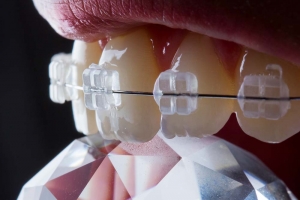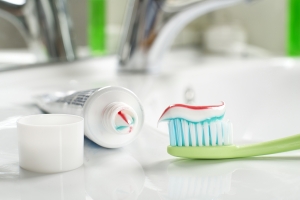
First of all, tell your dentist everything. Let your dentist know if you have bleeding gums, loose teeth, any issue when biting, or if any of your teeth touches or damages your gums, other teeth or your lips.
Do you really need straight and aligned teeth?
Depending on how do your teeth look, you should come up with this decision either you want it or not. Braces will bring you lots of advantages and fixes many issues your mouth or teethe may have. Your orthodontist will surely go through a really deep inspection of your mouth and teeth to find all issues which should be fixed after braces. In the other hand, braces has a process and during this process you must be very patient, take care of the braces, clean them in the correct way, avoid having some kinds of food which affect them like popcorn, chewing gums and any kind of acidic food. Brushing your teeth is not as easy as how it is now. In some people braces may cut gums for several times during the process. Usually once a few months, the wires of your dental braces must be tightened and it’s not only as time consuming as a dental treatment, it’s also sometimes painful. People who had braces say getting them off is a challenge and you feel they damage your teeth when your orthodontist is scraping off the glue.
If your dentist is an experienced dentist in orthodontics and does a good consultancy with you before and after installing your braces, you will surely have a very easy and convenient braces process.
Your dentist has a perfect knowledge of orthodontics
Dentists normally focus on the tooth but the ones who have a perfect knowledge of orthodontics focus on the jaw and the movement of teeth. So working with a dentist who is orthodency expert will help you have a healthier brace treatment and bite.
Consult your dentist
Talk about everything with your dentist. Braces treatment is a long process and needs you to meet your dentist very frequently later. So before starting this dental practice, consult with your dentist and make sure this dentist is the one you would like to continue with.
Your bite after doing the braces must be healthy
Make sure your dentist knows how to have your bite fixed after you get braces. The rows of teeth should meet in its proper way with no gap and they must not grind so much.
Changing your dentist or orthodontist is costly
It’s strongly advised to do a great research about the dentist you are going to do the braces with, since changing the dentist in the middle of the process can be very costly and time-consuming and the results of the quality can never be guaranteed. You may move to a new home and change your address and would like to change your orthodontist or dentist too. It’s surely worth to still keep with the same dentist until the end of the process.
After doing braces
Brush your teeth frequently, especially if you have used acidic or sugary drinks. Meet your dentist frequently and let them know about the status of your braces or any kind of unexpected change if there is any.
Dr. Sam Saadat is experienced in different kinds of braces as well as alternative ways such as invisalign if braces is not your choice.

